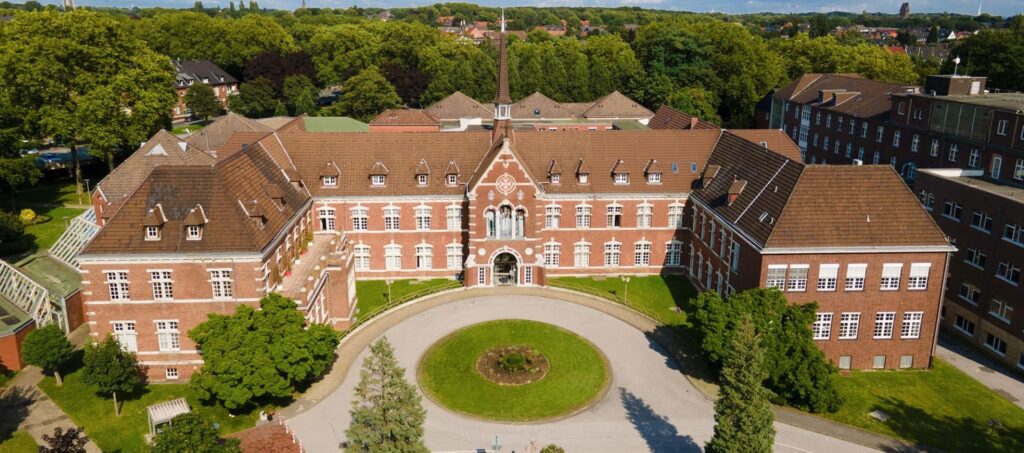 Oberhausen Clinic of the Niederrein Complex
Oberhausen Clinic of the Niederrein Complex
About the clinic
The clinic specializes in the diagnosis and treatment of urological diseases in children and adults, including prostate neoplasms.
“Oberhausen” is an academic treatment center of the Heinrich Heine University, one of the largest German universities.
In 2021 and 2022, Prof. Jan Fichner, head of the Clinic of Urology, was recognized as Germany’s best doctor by FOCUS and STERN for the treatment of prostate cancer.
The Niederrein complex today unites 6 formerly independent medical facilities. One of them, Oberhausen, is a renowned clinic in Europe for its developments in the field of diagnostics and treatment of urological and oncourological diseases. About 4,700 surgical interventions are performed there annually, including those using Da Vinci robotic surgery. The head of the Urology Department, Jan Fichtner, is also the head of the Prostate Tumor Center. His team of specialists applies modern treatment methods such as R0-resection for limited tumors within healthy tissue and the gentle surgical technique of removing the prostate with the help of a robotic assistant. Non-surgical methods include percutaneous radiation therapy and brachytherapy, including post-operative (adjuvant). Hormonal therapy can be offered to patients with metastases in an individualized intermittent regime (“load” – “rest”). A particularly important step in the treatment of heavy patients with bone metastases is the use of combined radiation and bisphosphonate therapy: this allows to reduce pain and significantly increase patient adherence to therapy.

